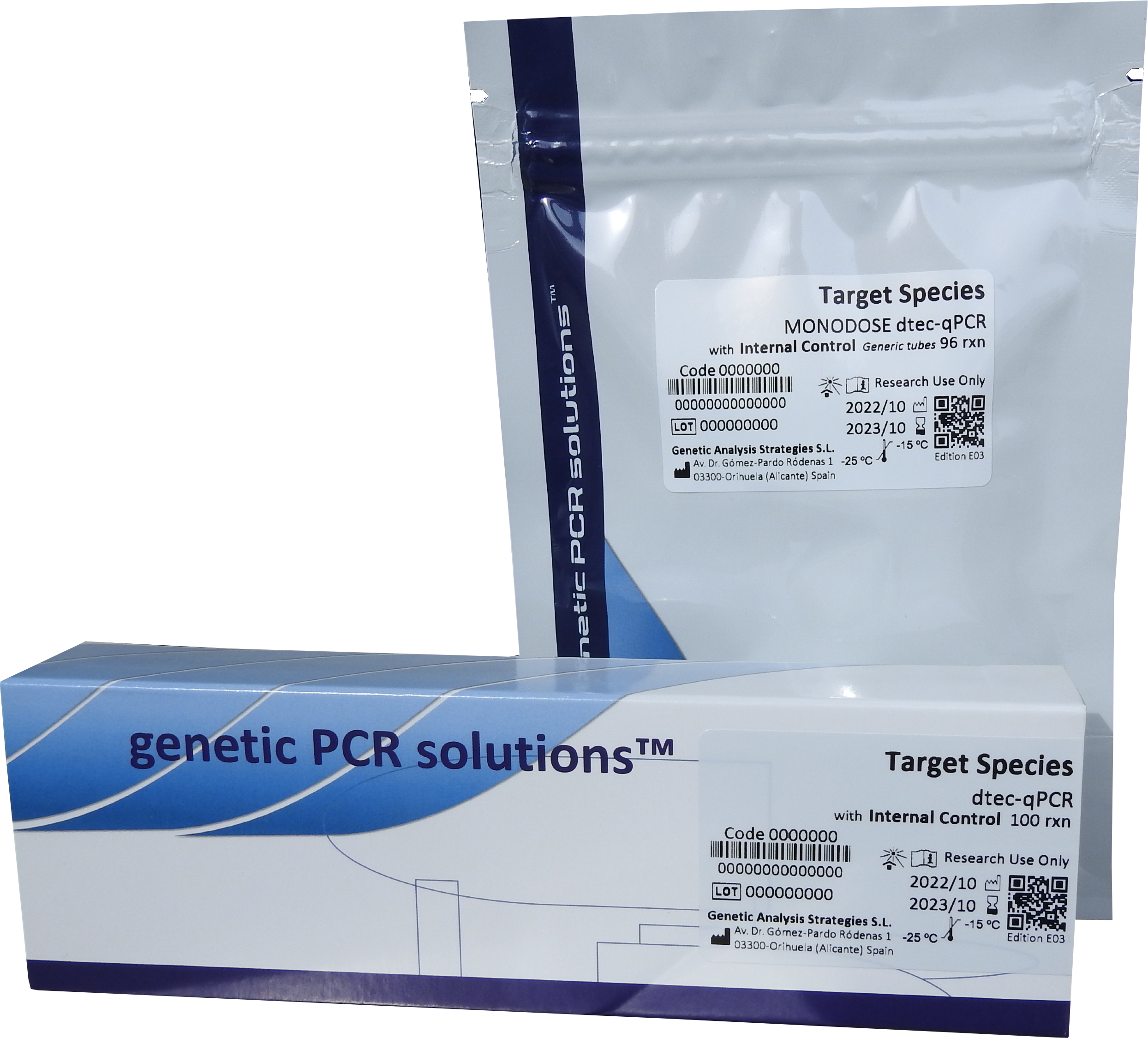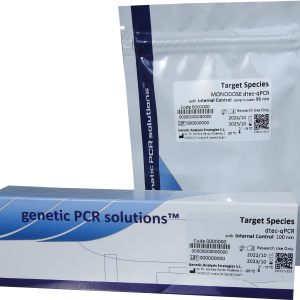Mycobacterium leprae
Description
The MycLep dtec-qPCR comprises a series of species-specific targeted reagents designed for Mycobacterium leprae detection by using qPCR. Mycobacterium leprae is a Gram-positive, intracellular, microaerophilic, acid-fast, pathogenic bacterium that causes leprosy. With a doubling time of 14 days, M. leprae has the longest doubling time of any studied bacteria. The incubation period of M. leprae can range between nine months and twenty years. The infection is thought to be spread through the skin and nasal mucosa. It replicates intracellularly inside histiocytes and nerve cells and has two forms. One form is tuberculoid, which induces a cell-mediated response that limits its growth. The second form of leprosy is the lepromatous form, marked by no host resistance and thus direct killing of self-cells through the immune response. Common results of the immune response are loss of sensation and disfiguration. Chronic inflammation can lead to this paralysis, specifically along the periphery, and can affect facial regions, contributing to factors such as blindness.
Kit Content and Prices
GPS™ primers and probes are sold for research use only
All GPS™ Kits are available in F100 and MONODOSE Format
GPS™ reagents are compatible with all qPCR devices



